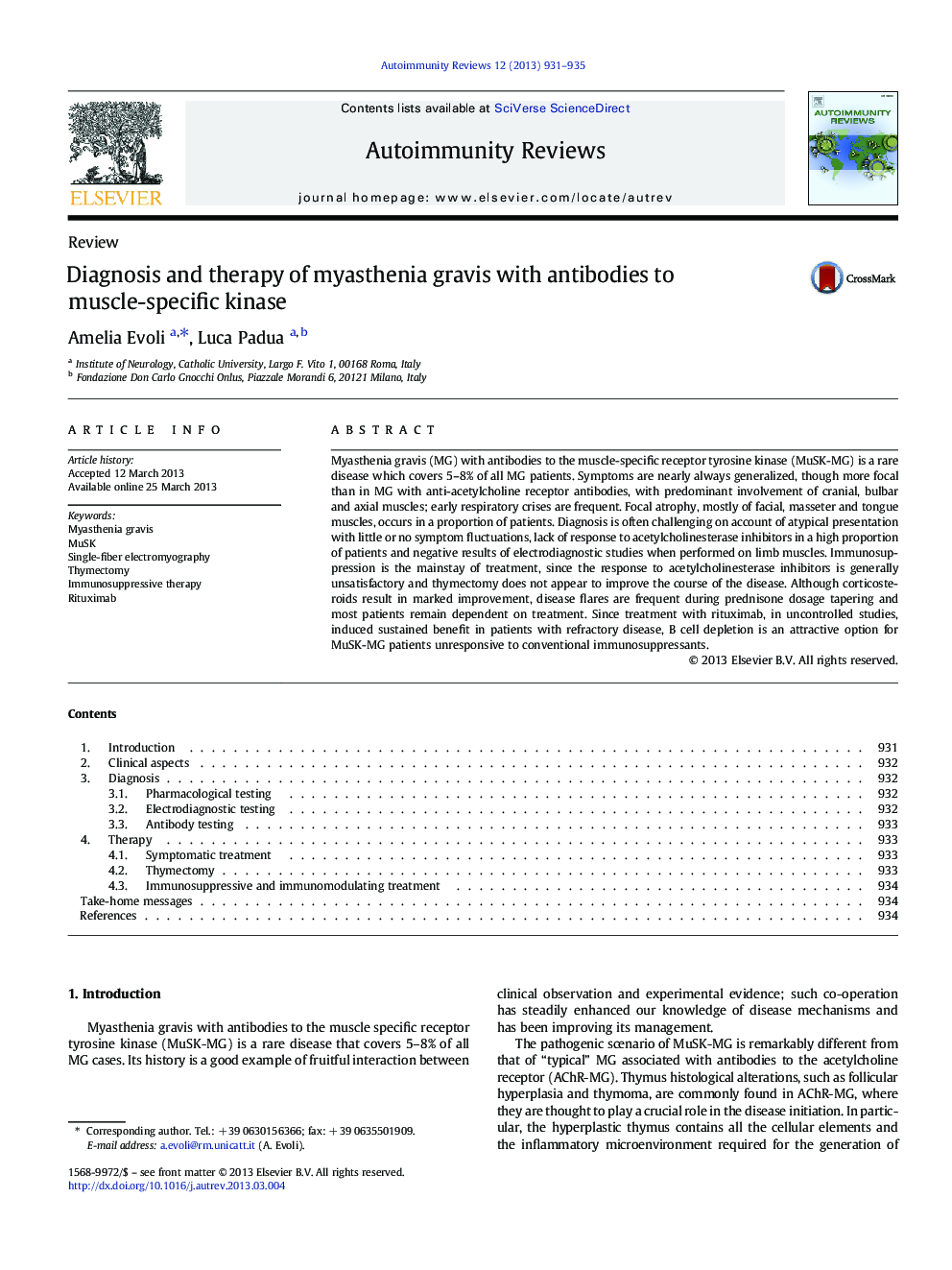| Article ID | Journal | Published Year | Pages | File Type |
|---|---|---|---|---|
| 3341476 | Autoimmunity Reviews | 2013 | 5 Pages |
Myasthenia gravis (MG) with antibodies to the muscle-specific receptor tyrosine kinase (MuSK-MG) is a rare disease which covers 5–8% of all MG patients. Symptoms are nearly always generalized, though more focal than in MG with anti-acetylcholine receptor antibodies, with predominant involvement of cranial, bulbar and axial muscles; early respiratory crises are frequent. Focal atrophy, mostly of facial, masseter and tongue muscles, occurs in a proportion of patients. Diagnosis is often challenging on account of atypical presentation with little or no symptom fluctuations, lack of response to acetylcholinesterase inhibitors in a high proportion of patients and negative results of electrodiagnostic studies when performed on limb muscles. Immunosuppression is the mainstay of treatment, since the response to acetylcholinesterase inhibitors is generally unsatisfactory and thymectomy does not appear to improve the course of the disease. Although corticosteroids result in marked improvement, disease flares are frequent during prednisone dosage tapering and most patients remain dependent on treatment. Since treatment with rituximab, in uncontrolled studies, induced sustained benefit in patients with refractory disease, B cell depletion is an attractive option for MuSK-MG patients unresponsive to conventional immunosuppressants.
